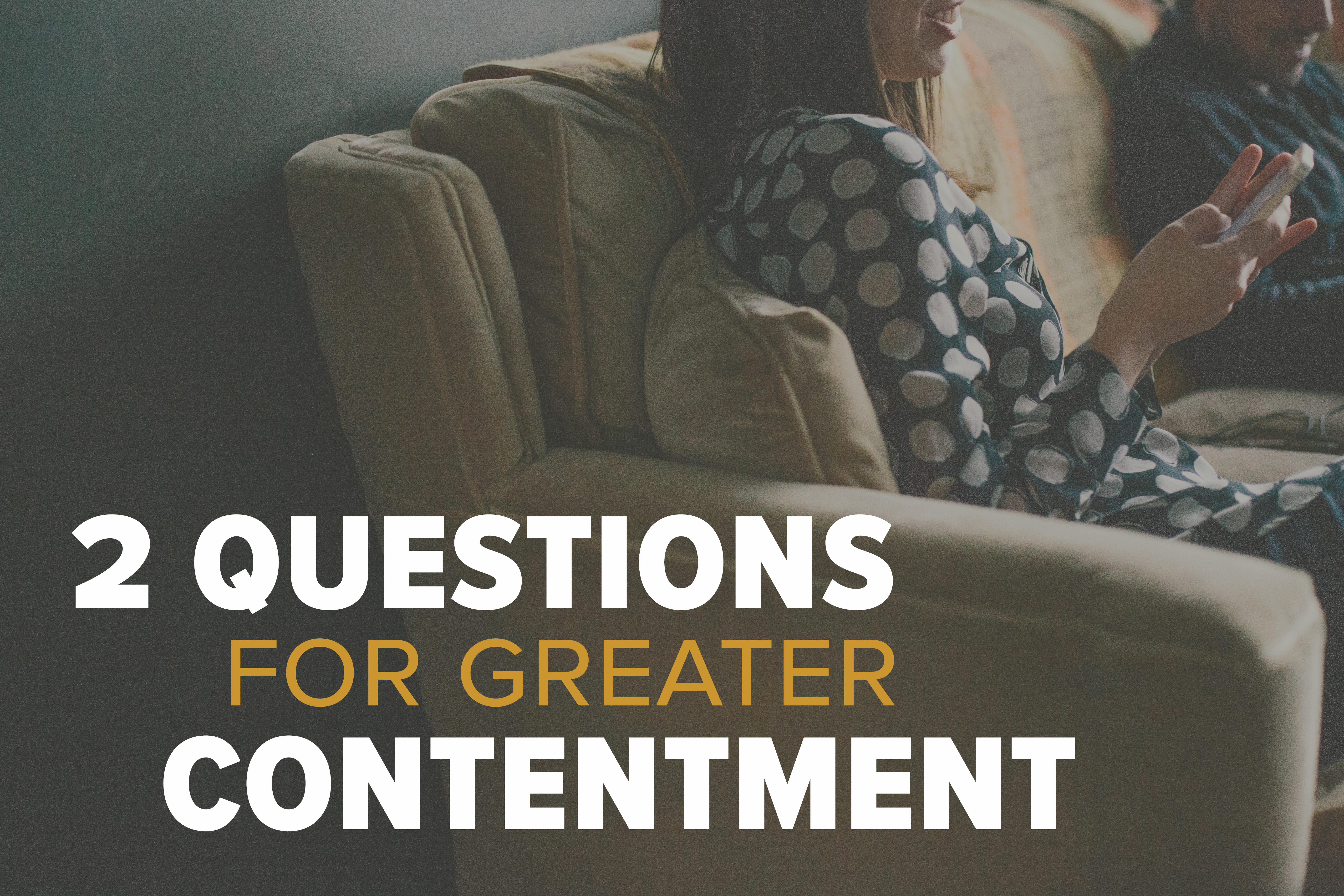Two Questions for Greater Contentment

Each November, as Thanksgiving approaches, my wife encourages everyone in our family to name one thing we’re thankful for each night at the dinner table. It helps our family focus on gratitude and grow in contentment. Here at Sound Stewardship, we have a similar exercise to help our clients intentionally focus on thankfulness surrounding finances.
This easy activity is a great launching point for discovering both the positive and negative emotions you may feel around money. It works best if you write your thoughts down, perhaps in a journal. If you’re married, this is a great tool to go through with your spouse, comparing answers after you’ve both written your answers separately.
Consider the five different ways you can use your money:
- Lifestyle: spending for food, housing, and fun — anything it takes to run your household.
- Savings: setting aside or investing for the future
- Taxes: paying to federal, state, and local governments
- Giving: giving to church, charity, or individuals in need
- Debt: paying off debts owed like mortgage, auto, or credit cards
Now, with these money categories in mind, read the following questions and write the first of these five categories that comes to mind. Then write at least one sentence explaining why you picked that answer. If you’re doing this exercise with someone else, wait to share your responses until you’ve both recorded your answers.
With the five categories of money use in mind (lifestyle, savings, taxes, giving, and debt), answer the following:
- In which area of your finances do you feel most content right now?
Of these five categories, where do you have the most peace right now? Is there any one particular area that you’re more happy about than the others? Where have you made the most progress? Would you feel more qualified giving advice about one of these to a struggling friend?
- In which area of your finances do you feel least content right now?
Of these five categories, is there any that is most likely to keep you up at night? Are you more prone to frustration or argument with a significant other or family member when one of these topics comes up? If you could wave a magic wand and instantly transform one of these, which area would you pick?
Struggling to answer these questions? Try ranking them in order of greatest contentment to least contentment. Then write a short sentence about why you selected the first and last answer in your sort.
While these answers can help understand your own heart behind your finances, they’re even more impactful when you share with someone else. We’d encourage you to share your answers with someone else you trust, such as your financial planner, a mentor, or a personal coach.
So beyond the gratitude aspect, why is this exercise helpful to us as financial advisors? It highlights the most emotional aspect of a client’s relationship with money. I as an advisor may believe the area a client needs to deal with first is savings — but if the emotional weight of their debt is a much greater burden, we usually don’t make much progress unless we deal with that first.
Now that you’ve identified the areas of most and least contentment, it may be easier to make a simple but meaningful financial step you’ve been putting off. For instance, this could be the time to celebrate some of the progress you’ve made in your “most content” category. It can sometimes be difficult to get out from under the financial pressures of life and truly commend yourself for improvements.
On the flip side, is there one thing you can do to make progress in the area you feel the least content about? If taxes are the area that gives you heartburn, would scheduling a tax projection and planning meeting with your CPA help? If it’s savings, can you create an automatic monthly contribution that would at least get you started? Don’t think about tackling the entire problem all at once, just the next step you could take to alleviate it.
This contentment exercise may or may not reveal the opportunity to make the most financial progress, but it will help you identify how to make the most emotional progress financially. It’s a practice that you can do not only near Thanksgiving, but year-round.
< Back to Updates

